In 1968, Marlin Briscoe made football history as the first Black starting quarterback in the Super Bowl era.
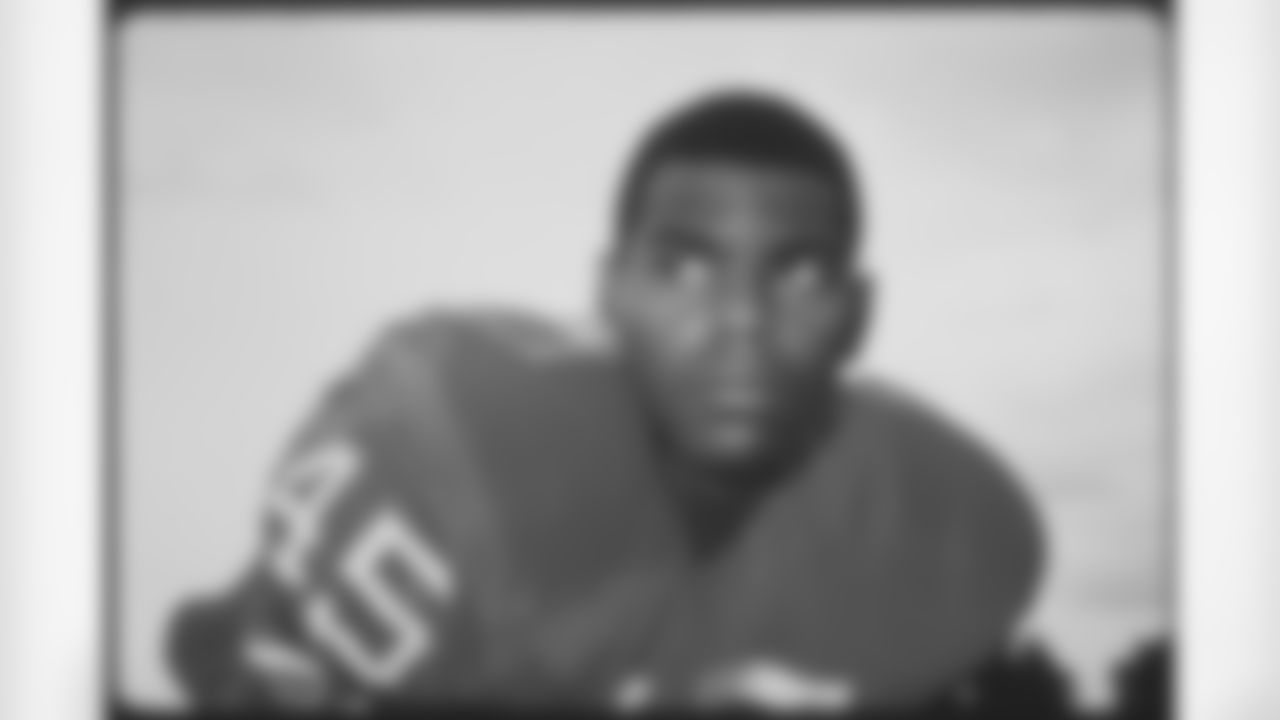
A portrait of Marlin Briscoe in 1968.

A scan of a Broncos draft notice memo from director of public relations Val Pinchbeck Jr. notifying media that the team had drafted Marlin Briscoe.
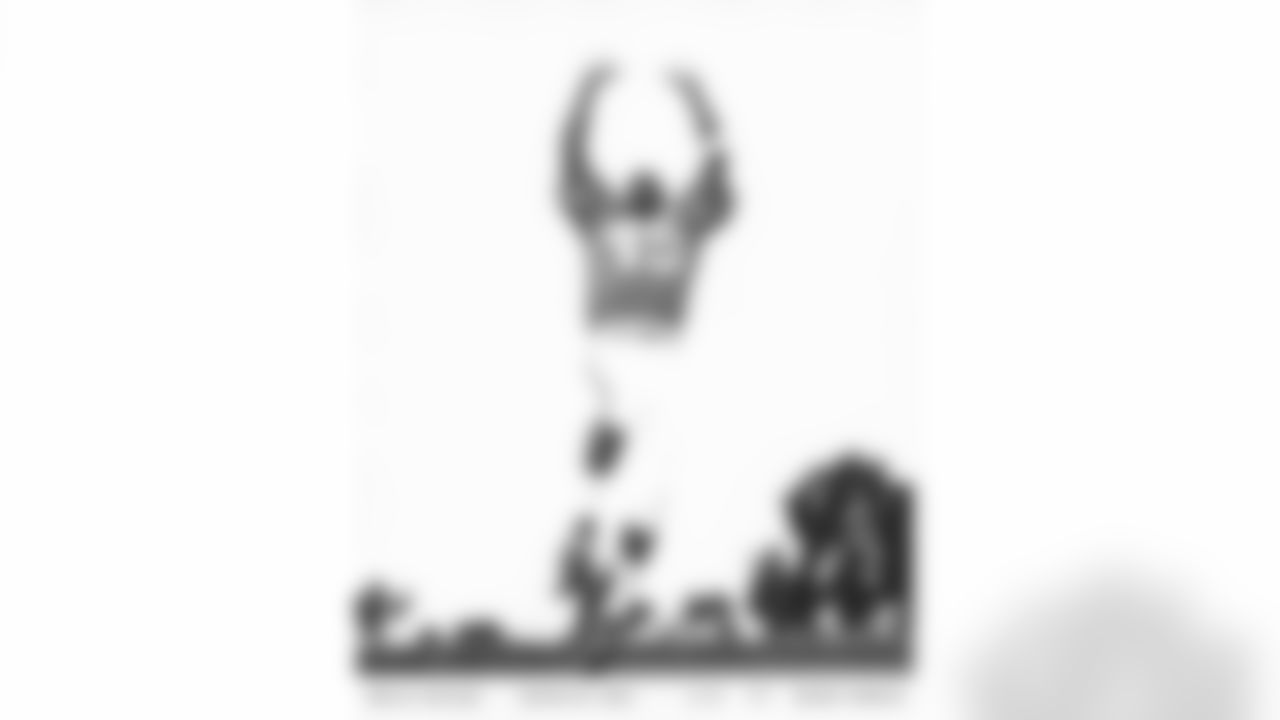
A portrait of Marlin Briscoe in 1968.
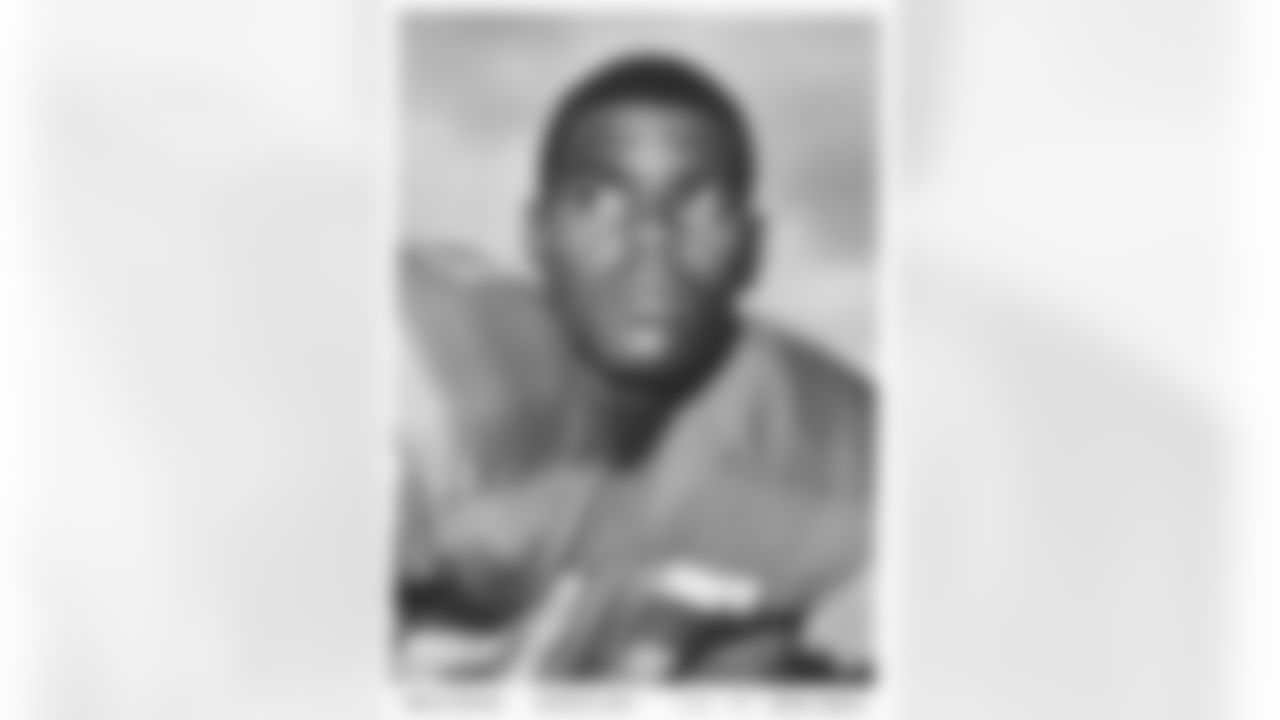
A portrait of Marlin Briscoe in 1968.
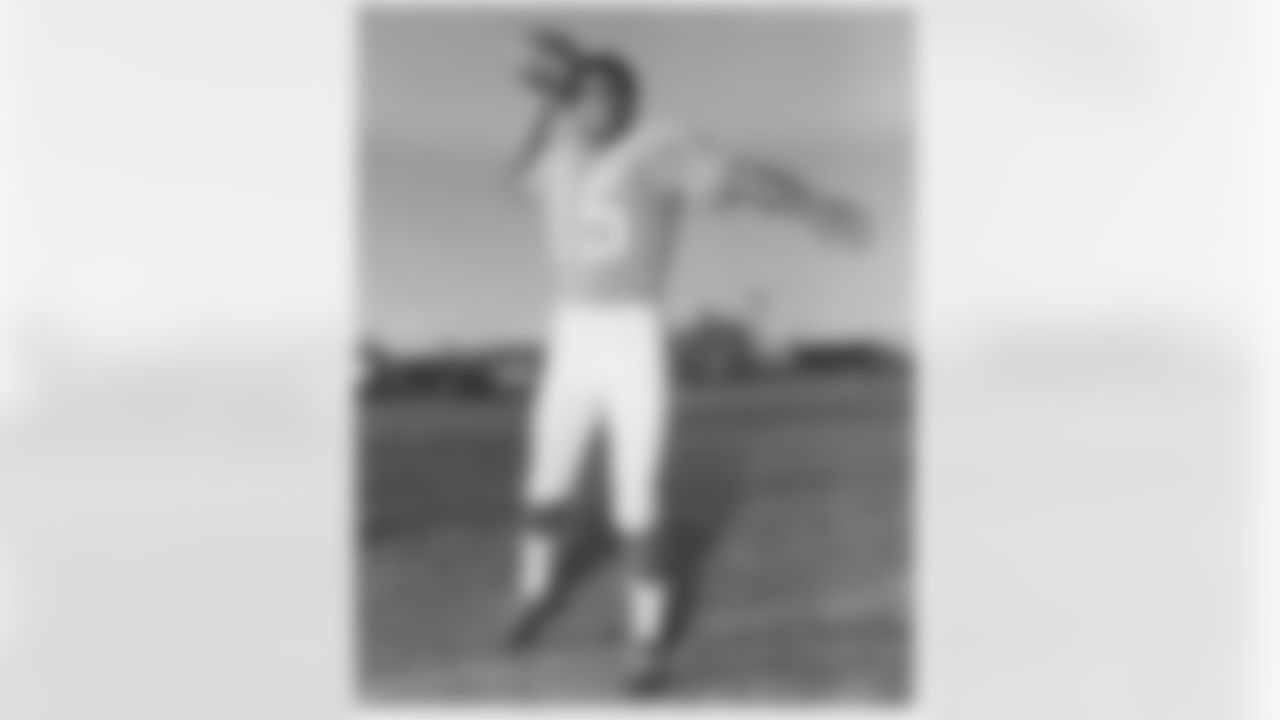
A portrait of Marlin Briscoe in 1968.
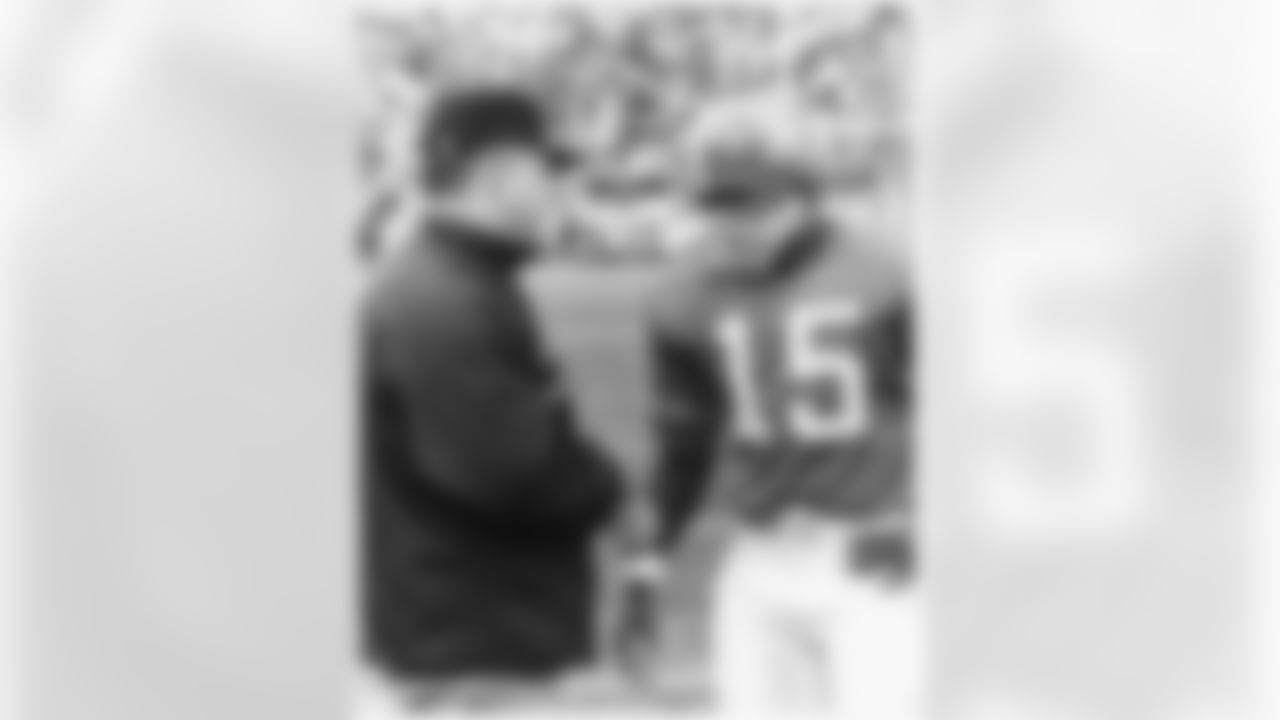
Denver Broncos head coach Lou Saban talks with quarterback Marlin Briscoe during the game against the Buffalo Bills on Sunday, November 24, 1968 at Mile high Stadium.
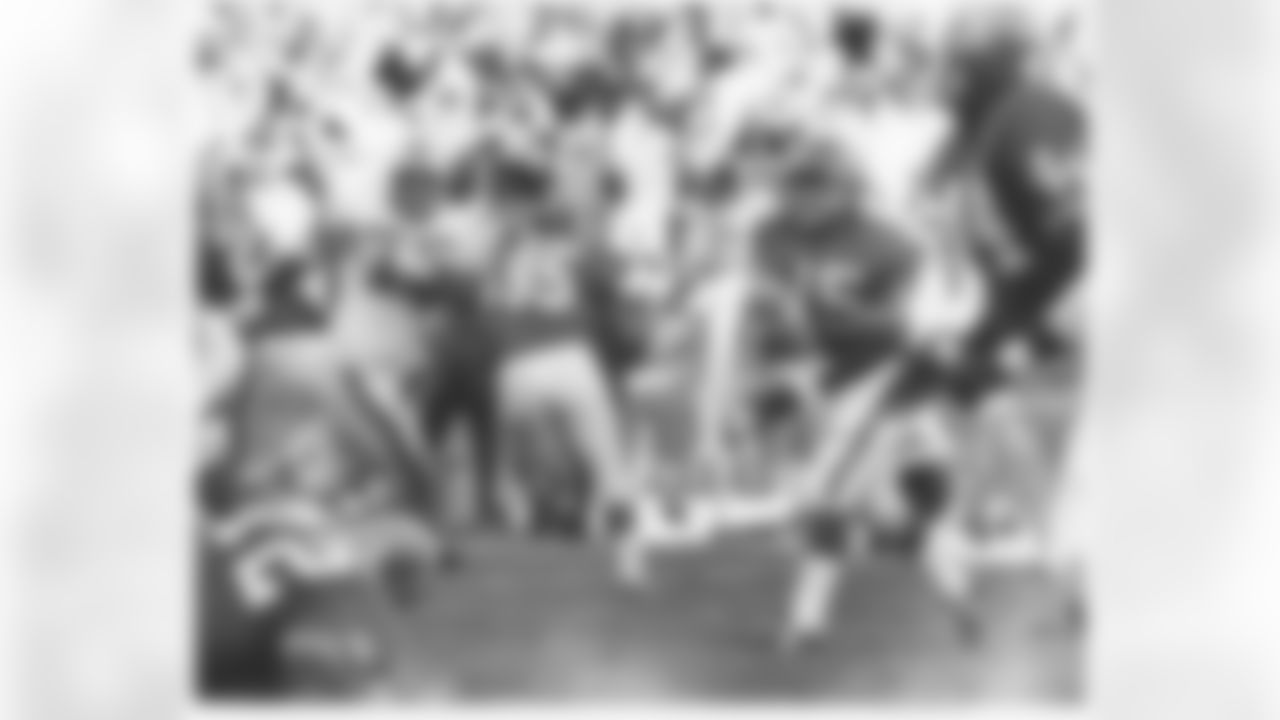
Denver Broncos quarterback Marlin Briscoe throws a pass during the NFL game against the Miami Dolphins on Sunday, October 27, 1968.
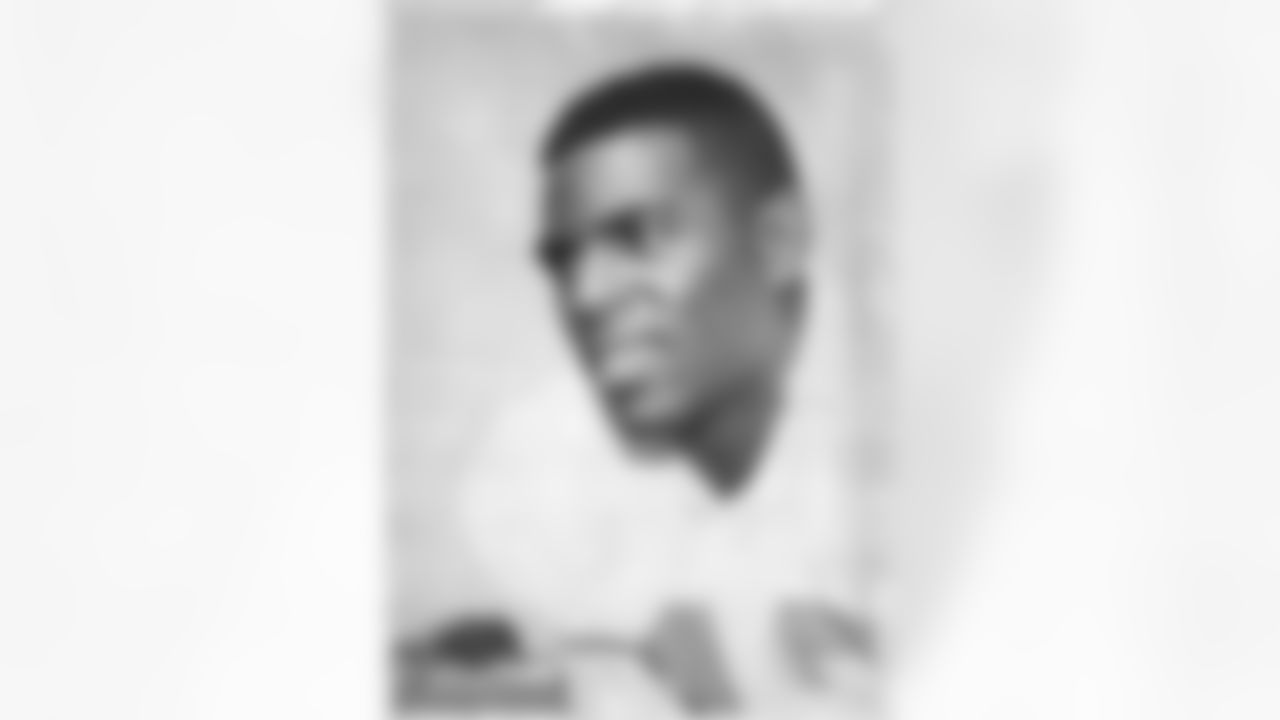
A portrait of Marlin Briscoe in 1968.
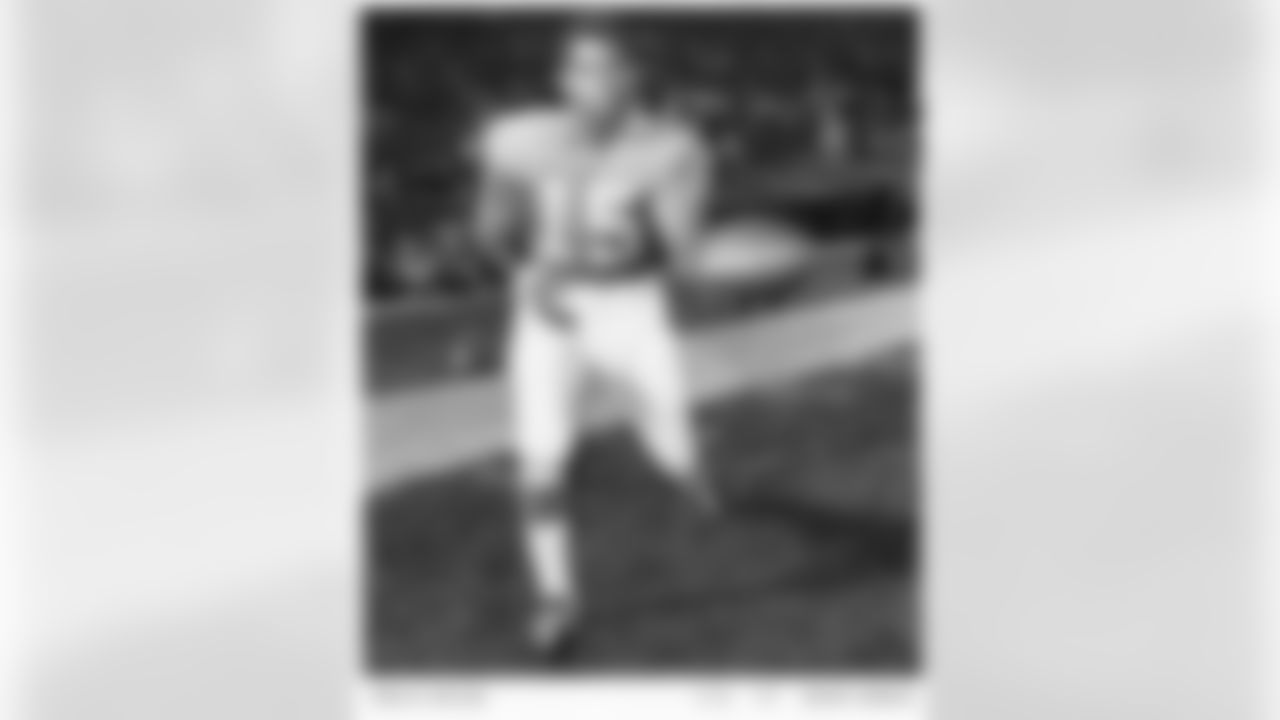
A portrait of Marlin Briscoe in 1968.
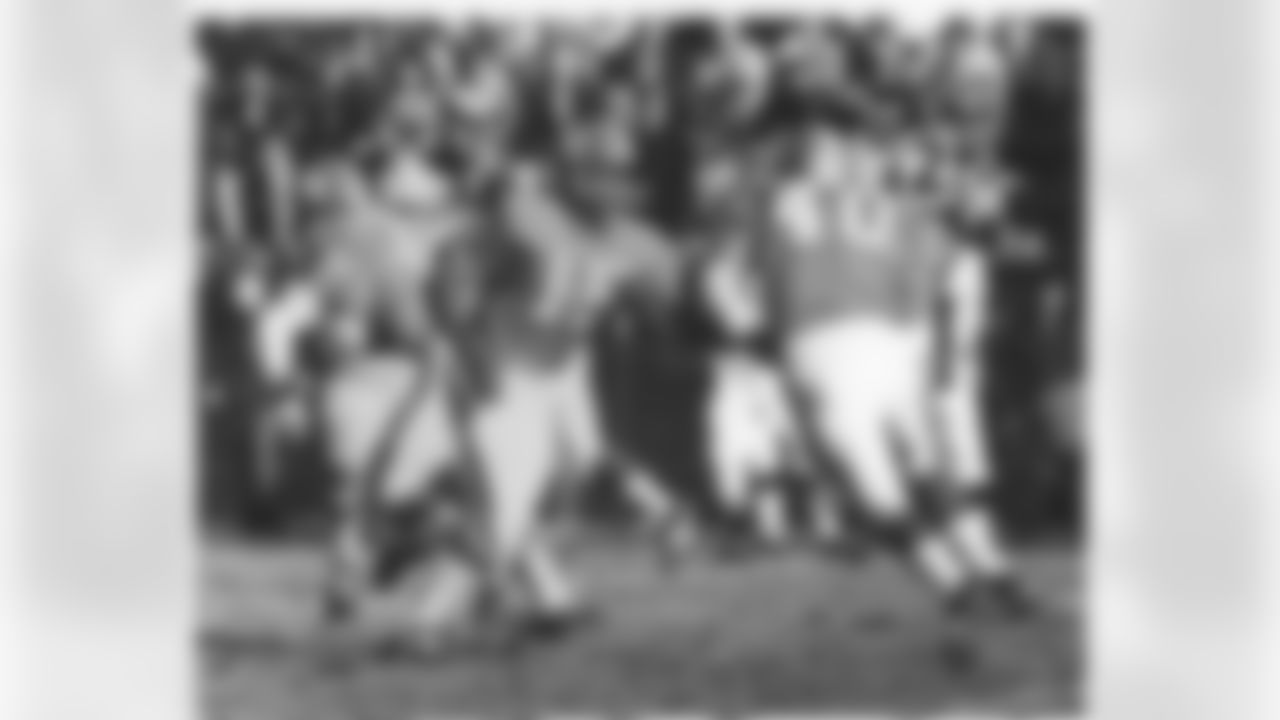
Denver Broncos quarterback Marlin Briscoe hands the ball to running back Brendan McCarthy during the NFL game against the San Diego Chargers in 1968.
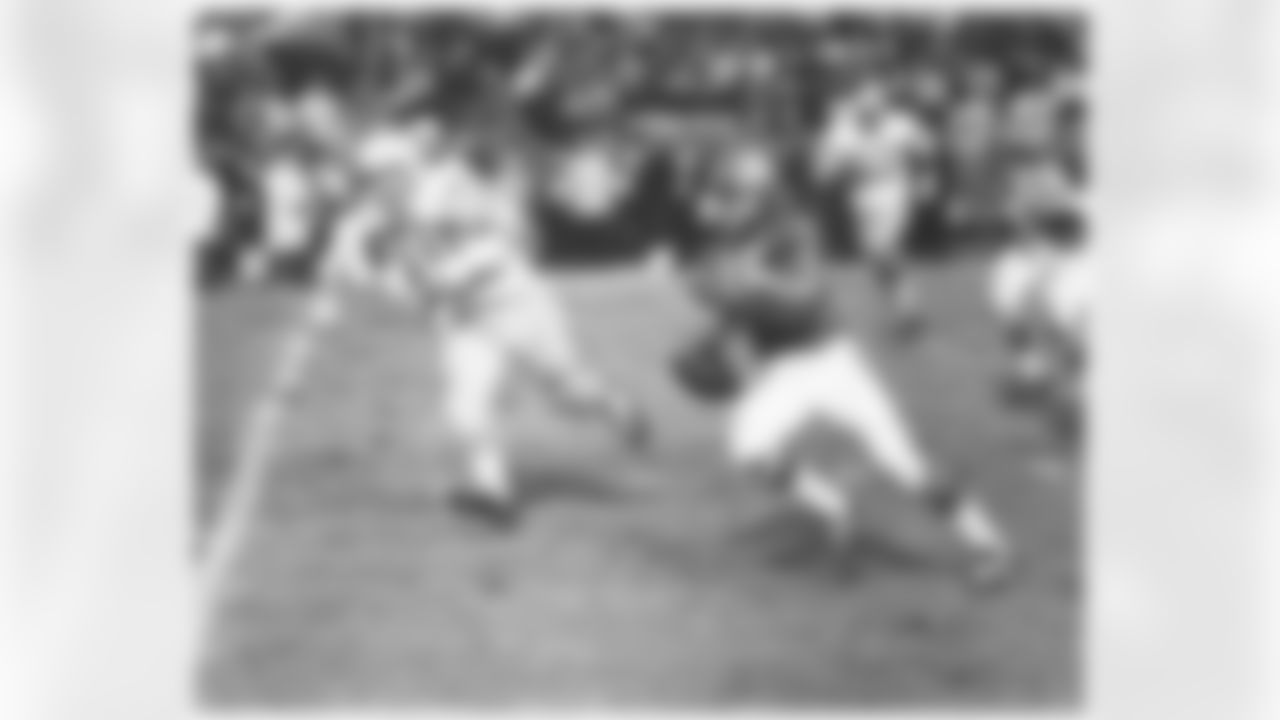
Denver Broncos quarterback Marlin Briscoe carries the ball against the San Diego Chargers in 1968.
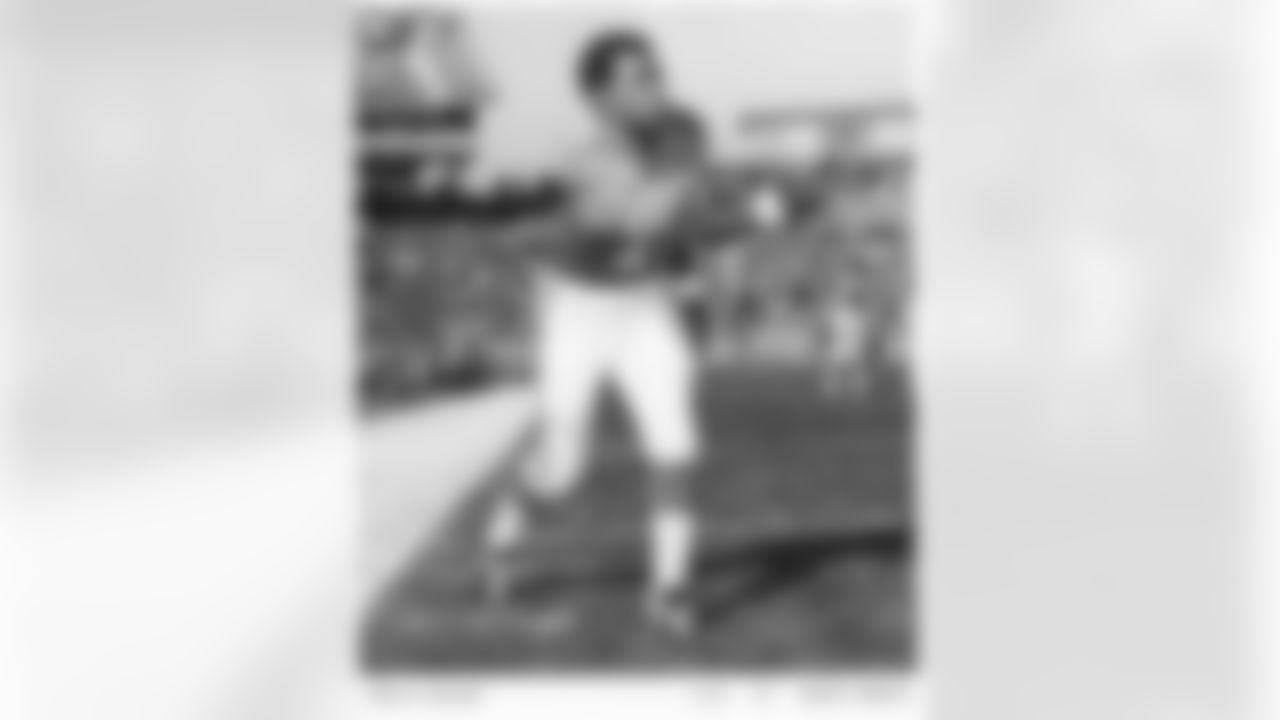
A portrait of Marlin Briscoe in 1968.
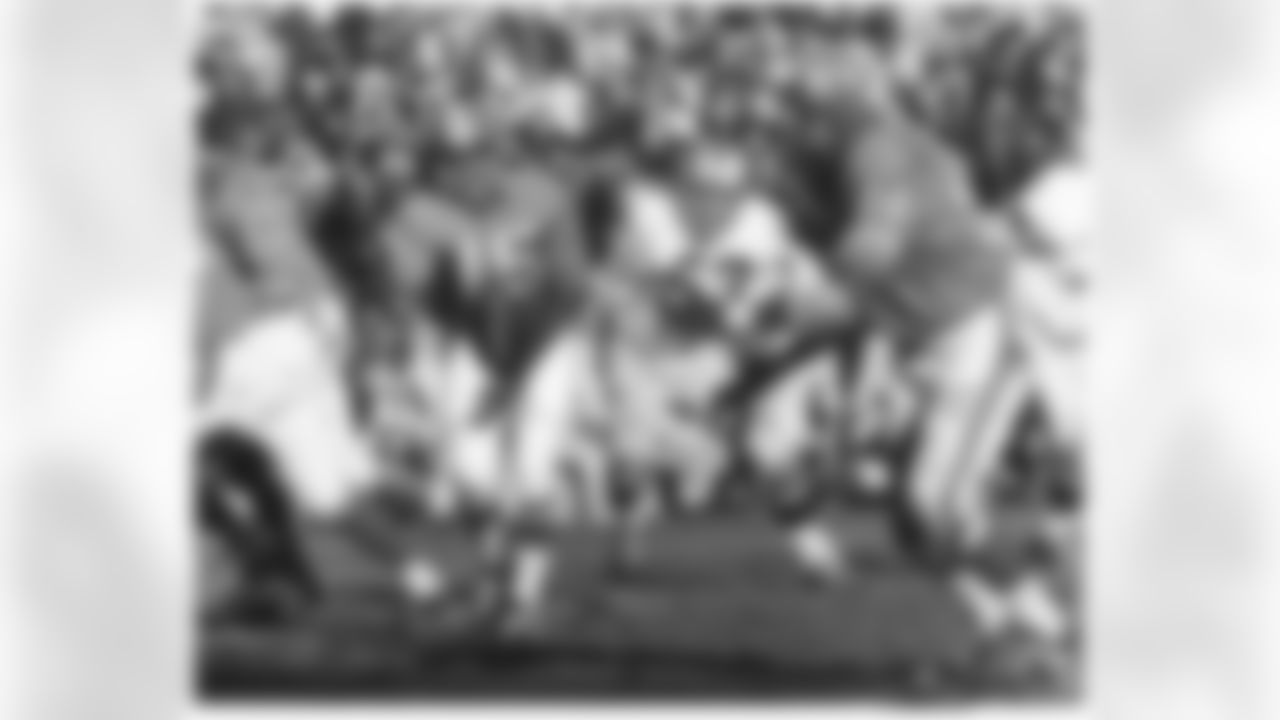
Denver Broncos quarterback tosses the ball to Floyd Little during a game against the Oakland Raiders in 1968.
Marlin Briscoe, the former Bronco who made history as the first Black starting quarterback in the AFL and modern pro football, has died, his daughter told the Associated Press on Monday.
"We are heartbroken to learn of the passing of former Broncos QB Marlin Briscoe," the Broncos said in a statement. "Marlin was a pioneer who shattered barriers, making history as the first Black starting quarterback in the Super Bowl era. He paved the way for countless others and created an indelible legacy, including through our Marlin Briscoe Diversity Coaching Fellowship. Our deepest sympathies go out to Marlin's family, friends and former teammates."
A 14th-round pick by the Broncos in 1968, Briscoe — known affectionately by his nickname "The Magician" — arrived in Denver after a stellar collegiate career for what was then known as Omaha University. As a rookie, Briscoe became a groundbreaking player for breaking the race barrier at the quarterback position. In his 11 games and five starts, Briscoe was an electrifying player who also was a vision of how the position would be played decades later.
At the same time, Briscoe's career also stands as an example of the harmful racial stereotypes and discrimination that players like Briscoe had to endure and fight. When he was drafted, Briscoe was pushed to change positions and later, when the Broncos decided to move on from him in spite of his successes, he was never able to find a chance to play quarterback again.
While Briscoe had to leave behind the position he loved, he nonetheless adjusted. He became a Pro Bowl receiver for the Bills in 1970 and won two Super Bowls with the Dolphins in the early 1970s.
To get to that point, Briscoe came a long way from humble roots in Omaha, Nebraska. There, he grew up near the bustling slaughterhouses that were the busiest in the world.
"It would make you make a decision about your life," Briscoe told DenverBroncos.com in 2021. "… I said, There's no way in the world. I'm getting my education. There's no way in the world I was going to work in the packinghouse the rest of my life."
He fell in love with sports there in Omaha, thanks to his cousin Bob Rose, who was a schoolteacher and youth sports coach. He provided Briscoe with a box of sports equipment, included a football. Idolizing star quarterback Johnny Unitas, Briscoe would take the football and challenge himself to hit a tree from a distance.
He'd hone his skills over the years and eventually became one of the region's top players, both at the high school and collegiate levels. At Omaha University, Briscoe set college records and was named an NAIA All-American, the Omaha World-Herald's State College Athlete of the Year and a unanimous all-conference selection. In 2016, Briscoe was inducted into the College Football Hall of Fame.
"He's got the greatest arm I have ever seen on any quarterback — college or pro," Saints scout Dave Smith said in 1968. "He's the only man I have ever seen who can run to his left and throw the ball right-handed 55 yards through the air with complete accuracy."
But in spite of all the glowing words, no team drafted Briscoe to be a quarterback. Even the Broncos, who did draft him, did so aiming to move him to defensive back.
While there probably were some concerns about his size, there were clearly more significant and pervasive issues for Briscoe's future at the position — namely, stereotypes of racial inferiority.
"There were a few things that society didn't think a Black man could do, and [three were] think, throw and lead," Briscoe said in 2021. "They didn't know how the fan reaction, manager reaction, player and teammate reaction — they didn't know how that was going to be."
In his first offseason, Briscoe would press the team for a look at quarterback, but it would be just a glimpse. After a brief tryout there, Briscoe began his move to defensive back.
But when the presumed starter, Steve Tensi, broke his collarbone in an exhibition game, Briscoe's hopes to play under center gained new life. The team's backups provided little hope and Denver's season was on the verge of collapsing.
So one day, Briscoe recalled, he found a new jersey in his locker.
"I turn around and there's [head coach] Lou Saban and [defensive line coach] Stan Jones," Briscoe said. "Stan was smiling at me. I was wondering what he was smiling at me for. Lou Saban said, My friend, you see that number 15 in your locker? I said, Yes, sir. He said, That's your jersey. You're now a quarterback. Man, my heart started pounding. If you'd ever see a 22-year-old have a heart attack, that was it. And he said, Put your jersey on, and let's get out to practice.
"And that's how it started."
Just days later, Briscoe got his first taste of game action. Though he hadn't had the time to learn the playbook and had barely practiced at quarterback, Briscoe was thrust into the game in the fourth quarter. It was a tantalizing effort; he pushed the Broncos to a touchdown on one drive, but came up just short with less than a minute left for a game-tying or -winning drive.
The effort, however, did instill Saban with the confidence to start Briscoe the following week against Cincinnati. The move would be a historical one and one that Briscoe had certainly considered. Leading up to the draft, Briscoe admitted that the concept "scared" him, and now with the moment upon him, he tried to ready himself for it.
"I prepared myself before I got in, but prior to the game it ran across my mind a lot," he told the New York Times. "I think other Black athletes, like Jackie Robinson, must have had the same feeling."
It would be an up-and-down process the rest of the season, though. Briscoe was benched in his first start for the veteran Tensi, and three weeks later, Tensi would be benched for Briscoe. In that game, Briscoe helped power a comeback win like the one that eluded him in his first game. Denver recovered from a 14-0 deficit for a 21-14 win behind two rushing scores from Briscoe.
Later, Briscoe would return to the starting lineup for the Broncos' final four games of the season. While the Broncos earned a win in just one of those games, Briscoe played admirably; he averaged 251.5 passing yards, 28 rushing yards and 2.5 passing touchdowns over that stretch.
"I'll say that Marlin Briscoe is the most dangerous scrambling quarterback I've seen in nine years in the American Football League," Hall of Fame Chiefs head coach Hank Stram said after the Broncos’ season finale vs. Kansas City. "He's like playing against 12 men."
Briscoe was named the runner-up for 1968 Rookie of the Year, and his 14 touchdown passes that year still stands as the franchise's rookie record.
But after that season, the Broncos decided to move on from Briscoe. They acquired Pete Liske from the Canadian Football League and when the team had offseason quarterback meetings, they failed to notify Briscoe. While that was not the end of things for Briscoe, it seemed clear to him that Saban was not giving Briscoe a fair shake to compete at quarterback.
Amid contentious contract negotiations, Saban and Briscoe broke things off and Briscoe became a free agent that summer.
"We could have won a lot of ballgames with Marlin," Ring of Famer Rich "Tombstone" Jackson said in 2021. "No [telling], really, how far we could have gone. I just know that Marlin had all the physical tools to get the job done. He could pass, he was smart and he could move. That was an asset that none of the quarterbacks that we had possessed."
Briscoe didn't get a shot again to start at quarterback or even to really compete at the position. Instead, he had to become a wide receiver. While he excelled at the position in those stints with the Bills and Dolphins, the success was somewhat bittersweet. He found pride in refusing to quit, but wondering what could have been was always there for him.
"When I go to Denver Bronco reunions, all those guys come up to me and say, Man, we could've won with you," Briscoe said in 2021. "They say it now. Back in those days, you couldn't question anything. You did what the coaches and society told you to do. So you couldn't protest and nobody could lobby for you or anything like that. … After all these years, they respected what I was able to bring to the table. So I feel good about that."
And while Briscoe's talent was remarkable, his legacy on the game goes well beyond how he played like Kyler Murray or Russell Wilson nearly 50 years before they entered the NFL. His opportunity was able to open more for Black quarterbacks like him, and while he wasn't able to see his dream fully fulfilled, he helped ensure those that came after him would be able to.
"You've got to give him some pioneer status," Doug Williams, the first Black quarterback to win a Super Bowl told DenverBroncos.com in 2021. "Even though he don't get that type of recognition. For what he did in 1968, he deserves way more recognition than he gets."














